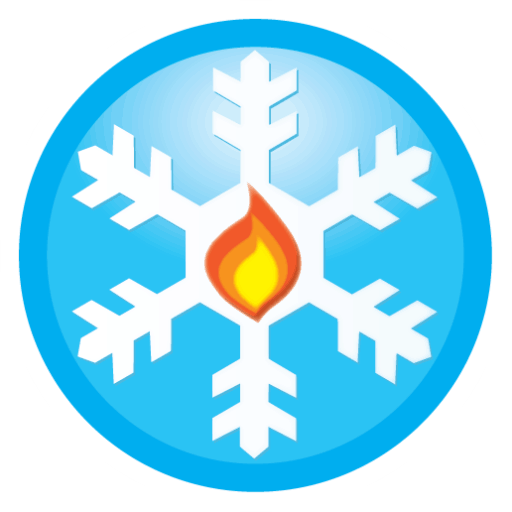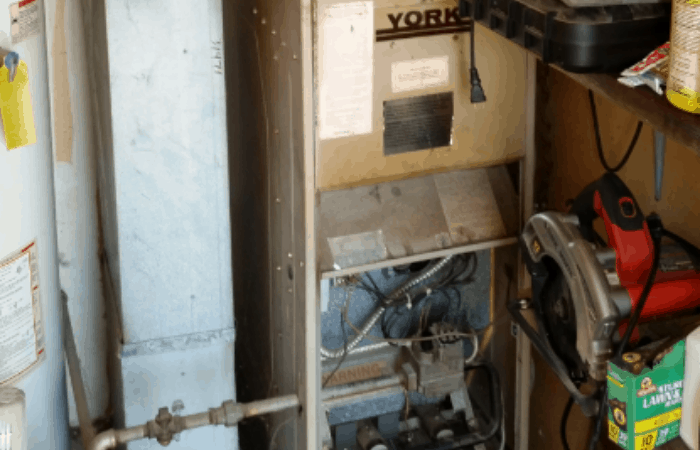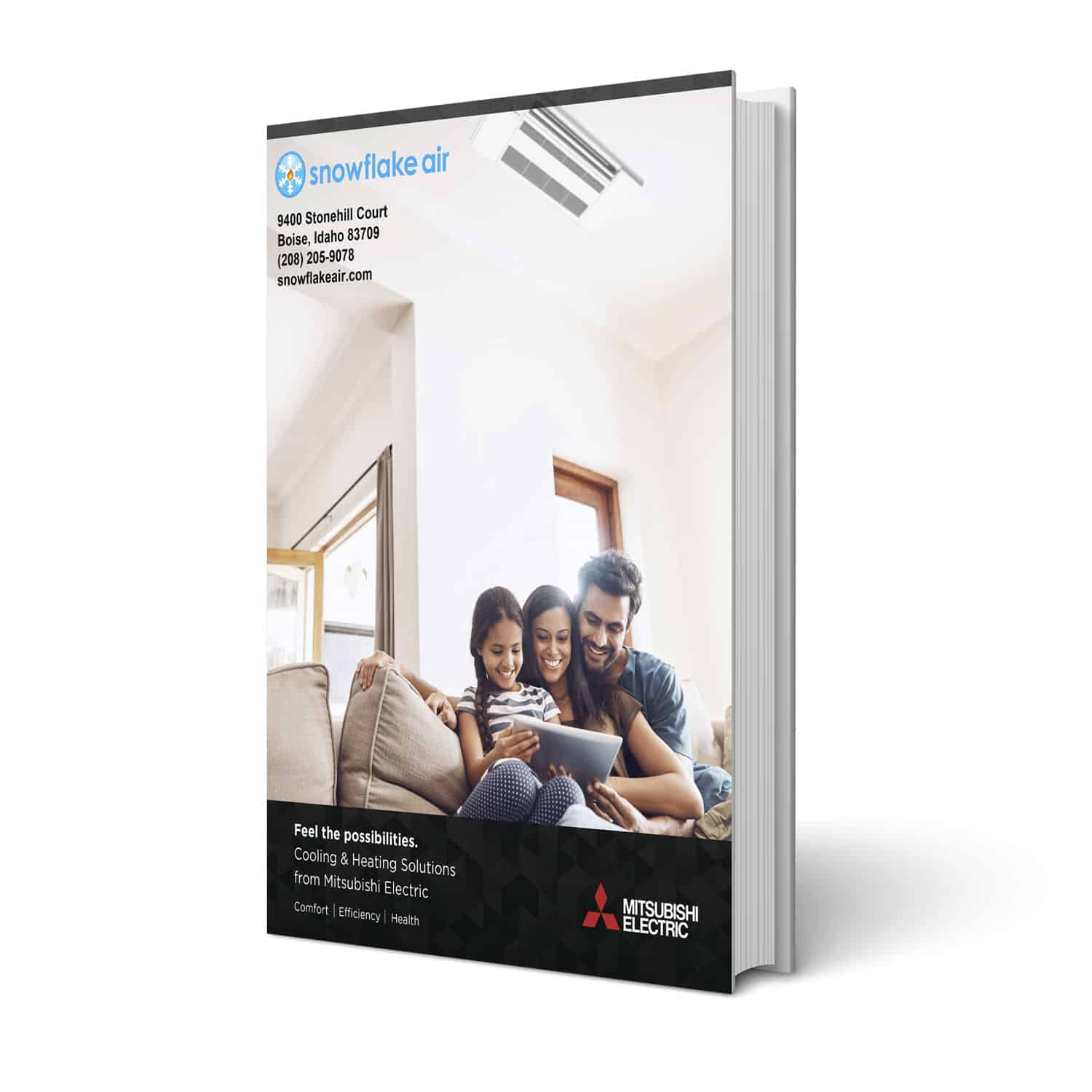The bad news is that having the heater break down in your Meridian, ID home this winter is a strong possibility. It’s working its hardest in the coldest weather, and that’s when all the stress can cause a problem.
The good news is that you can head off an emergency furnace repair call by catching the early warning signs. If you get it fixed before your heater won’t turn on at all, you’ll spend less money and won’t e nearly as disrupted.
Prevention is vital when it comes to heating and cooling. Once the problem gets worse, you may end up going days without heat and even buying a new system.
Fortunately, Snowflake Air is here to help you keep that from happening! Read up on the five warning signs of a broken heater. And call us right away if you’re noticing any of these in your Meridian, ID home. But first, we need to address a common, and very severe, heater problem.
Cracked Heat Exchanger
A cracked heat exchanger is when the part of the furnace where combustion occurs breaks. When that happens, carbon monoxide can seep out and into your home. Since that gas is deadly (more on it later), this is a major mechanical and health issue. And, it’s so expensive to repair that you’ll likely need a whole new furnace.
If you notice your heater turning on and off or blowing cold air, call your HVAC contractor right away. You want to get these fixed before they lead to a much bigger problem.
Five Signs Your Heater Is Broken
If you notice any of these signs or symptoms, call your heating and cooling company. Your heater is likely broken or on the way to having a big problem:
- Carbon Monoxide Detector Keeps Going Off
- House Is Not Warm Enough
- Heater Occasionally Blows Cold Air
- Heating Bill Suddenly Goes Up
- Furnace Makes Banging or Gurgling Noises
Let’s break these down one by one.
Carbon Monoxide Detector Keeps Going Off
First, let’s get our priorities straight: A beeping carbon monoxide detector means there’s a hazardous health situation going on in your home. Colorless, odorless, poisonous gas is seeping in, and you need to address it right away.
When it goes off the first time, open all the windows and shut off the furnace. Then call your HVAC company. If it happens again, leave and call the fire department.
With any luck, one beep is a fluke. Otherwise, you’re getting a buildup of gas that will make you nauseous, then cause you to pass out and suffocate.
But what’s causing it? Odds are, it’s the furnace.
Specifically, it’s often a cracked heat exchanger. That’s the chamber where the system generates heat — and carbon monoxide as a byproduct.
If it’s working the way it should, that gas leaves safely through the exhaust. But, if the exchanger cracks, it begins seeping into the house. Your detector will alert you when it’s happening.
House Is Not Warm Enough
This seems like it’d be obvious, but it often begins as a subtle problem. Weak air circulation or not enough heat means your home is a little more chilly than it should be.
If the problem starts while the weather is still relatively warm, you may not notice right away. Or, if it gets worse over time, there probably won’t be one moment where you realize it’s a lot colder than the day before.
So, don’t ignore feeling chilly in the house even with the heat turned on. Often, your furnace is struggling to keep up with demand, even when it should have no problem heating your home.
Sometimes, the problem is as simple as a blocked vent or clogged air filter. But, if you address these concerns and your house still doesn’t warm up, call in a pro.
Heater Occasionally Blows Cold Air
The last thing you want your heater to do — besides stop working altogether, of course — is send cold air into the house. But, if there’s a problem, this might happen. The good news is that it serves as a warning of a small problem you can take care of before things get worse.
Your furnace has a failsafe that prevents it from overheating. If, for whatever reason, heat builds up inside the unit, the system blasts out cold air to regulate the temperature.
Yes, things can get too hot inside a heater. These machines are made to distribute heat, not house it.
Change your air filter right away if this happens. If you haven’t put in a new one in a while, the one you have may be very old and clogged.
If the problem persists, call your HVAC contractor right away. The temperature swings wear out the inner components, and you’ll have a full-fledged breakdown on your hands.
Heating Bill Suddenly Goes Up
Here’s another subtle problem: Your heating and cooling system suddenly starts using more oil, gas, or electricity to do the job. It’s a sign that, at best, your system is getting older and can’t work as efficiently as it used to. But, if you have a newer furnace or notice a sudden spike, you have a more acute problem on your hands.
The trick here is noticing when it happens. Once again, you can’t tell right away — it’s not until the bill arrives that you may even notice it’s occurring.
A smart thermostat comes in handy here. These new models monitor energy usage all the time, and they’ll alert you to any drastic changes pretty much as they happen.
Either way, you’ll want to get the system checked out. If it’s overworking, it’s heading for a bigger problem.
Furnace Makes Banging or Gurgling Noises
We’ll round out with a pretty easy one to spot — or, more accurately, hear: Banging or gurgling noises. These can happen at any time of the day, but you’re more likely to notice them in the evening when everyone’s home and things quiet down.
Prevent HVAC Problems With Annual Furnace Maintenance
This article has been a lot of doom and gloom, but you can take some preventive measures to prevent these problems. Specifically, you can — and should — get a heater tune-up every fall.
With preventative maintenance, you’ll have a certified HVAC professional inspect your system, clean it, and make sure every inch of it is in excellent working order. You’ll head off problems before they start and potentially add years to the life of your heating and cooling system.
Emergency Furnace Repair in Meridian, ID
Even with all the preventative maintenance in the world, any heating and cooling system will eventually break down. With any luck, you’ll be ahead of the curve. But, if you have to call for emergency furnace repair for your Meridian, ID home, Snowflake will answer the phone any time in the day or night.





Trackbacks/Pingbacks